“What are you doing? I thought you missed the bus.” My mom said as she pulled the car next to me on my walk home from my bus stop after school on an early fall day in 2004. The leaves had just begun to fall and coat the sidewalk, making a beautiful mosaic of warm tones. While aesthetically pleasing, these leaves were causing me to take over 30 minutes to walk home when it should have taken me only 5. “Step on every leaf or your mom will break her back” I would say to myself.
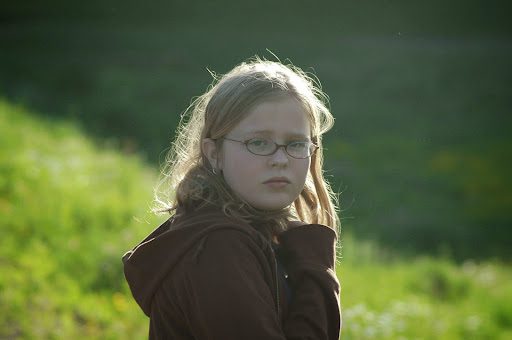
It seemed like a fun spin on the old saying “Step on a crack and break your mom’s back.” I didn’t think much of it, but felt compelled to ensure that I would step on each leaf I saw along my path, making sure that it made a satisfying crunch sound as I stepped down. If I missed one, I had to go back to the beginning of my journey home to ensure that my mom would be okay. I could not explain my thoughts to my mom, I just got into the car and headed home.
These incidents continued to happen throughout my fifth-grade school year. I felt compelled to do many things, many seeming completely random, but they stuck and made day-to-day tasks almost impossible. “Write directly on the line, if you write over it you will fail the test” resulted in papers with holes in them from erasing so frequently. “Wash your hands every time you see a sink, or you will get yourself and others sick” meant I was developing eczema on my hands. “When you are in the car you have to say ‘That’s a cool car,’ or that car will hit you,” this meant I stopped leaving the house. “Count your steps. Make sure that you get somewhere in 4 steps or a multiple of 4 steps, or you will die” made me cry walking room to room in our house.
I was miserable, avoidant, and felt completely controlled by my thoughts. I was only 11.
My parents noticed these behaviors and tried everything to help. They took me to several therapists- all with their own tools and tricks to try to support me. Recommendations like taking deep breaths, holding fidget beads, snapping a rubber band when you have a negative thought, and “just try to avoid the thought” were all suggested while my thoughts and behaviors continued to get worse. Each failed attempt in seeing someone new made me feel frustrated with myself and more and more alone.
They found a therapist who specialized in the thoughts I was having. She quickly diagnosed me with Obsessive Compulsive Disorder (OCD) and immediately started Exposure and Response Prevention (ERP) therapy. She suggested medication to help the ERP feel more approachable. My mom drove me to therapy several times a week, over 30 minutes each way, to get the help that I needed.
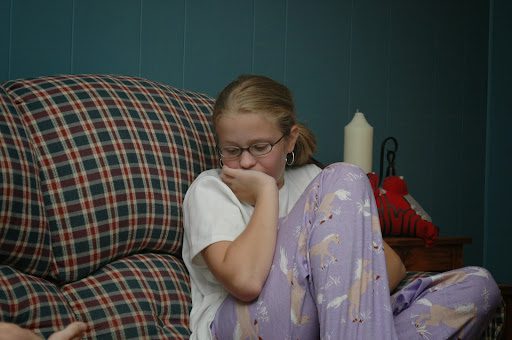
I hated therapy. I cried through sessions and often refused to talk. I had to do a lot of exposure to things that were stressful for me (and there were a lot of them). I remember touching things that were disgusting to me like public toilets or doorknobs and writing stories about my family members or friends getting hurt or dying. I was asked to name my OCD (which my 12-year-old self affectionately named “Dumbo”) and draw it. It was hard, but it was working. My thoughts and urges were not as strong, and my day-to-day life slowly began to feel better and more normal for a middle schooler.
One day I asked my therapist when my OCD would stop telling me these scary thoughts, to which she responded “Your OCD will be with you the rest of your life. That is why it is so important to figure out how to manage it.” I was crushed inside. The words replayed in my head for weeks (and still do 17 years later.) I could not imagine having to deal with this forever.
After several years of therapy, homework, and teamwork with my parents, the time in therapy helped and made my OCD’s control over my body and brain more tolerable. I was able to stop taking medication and was able to enjoy the end of my middle school experience in a way that I had not been able to for several years.
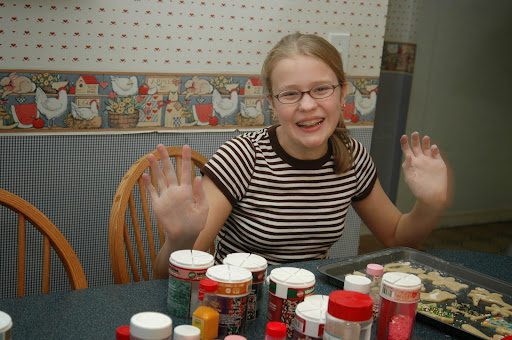
My therapist saved my life.
This progress and control over my OCD lasted well over 10 years. There were so many days (even sometimes weeks) when I would completely forget that I had OCD. My experience seemed like something in the past. I was a high-achieving high school student with great friends and an amazing family. I went to college where I lived independently, studied abroad, and quickly moved on to graduate school for social work. I worked as a school social worker for years supporting kids and families and loved every minute of it and moved to work for a start-up focused on providing accessible mental health solutions for children and their families.

Over the years, I was relatively open to friends about my experience with OCD throughout high school, college, and beyond. I remember the time, place, and experience of telling each of my friends and their response. Most met me with open arms, some with confusion, and many with a comment similar to, “You seem completely fine now!” I remember telling my now-husband in high school about my OCD and him asking many questions and my response was, “The good news is that I am completely over it and sometimes forget I even have it.”
And I was completely fine for a long time. I had twinges of OCD here and there throughout my late teens and early twenties when I would travel, when I was sick, when others were sick, or when normal everyday issues came up with family or friends. But overall, I was okay, I was happy, and I was able to live my life with OCD.
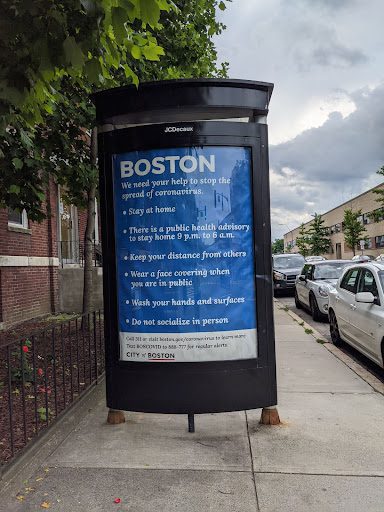
Then suddenly it was March 2020, and it was as if all my obsessions and thoughts became reality. It felt like everyone around me was telling me to do the compulsions I was working so hard to not do day in and day out. “Wash your hands while singing happy birthday twice, or you won’t be clean”, “Wipe down the grocery cart with Clorox wipes before you use it, or you’ll get COVID”, “Don’t see your friends or family, or you’ll kill them.” This advice, these headlines, they were the same types of thoughts that I had when I was 11. But this time, it wasn’t me making them up, it was the state of the world.
I stuck to the toolbox I knew for years for the first few months. “Don’t give in to every thought” I would tell myself as I would avoid Clorox wipes while masked going into the grocery store. “Try to not do compulsions” I would remind myself as I would try to only wash my hands for 15 seconds instead of the full 30. But the scariness of the world got the best of me and made it very unclear what I was supposed to do to support my OCD while also staying physically healthy.
I found myself getting into obsessive and compulsive cycles once again. Compulsively checking on the health of myself and those I love, showering for long periods of time after being outside, and avoiding “safe” situations out of fear of getting sick. I told myself I was fine and that I did not need help. The truth was, I was embarrassed and scared, especially as someone who was now a therapist myself. My OCD came back in full force again when I was 27. After a few months of suffering, I did the only thing I knew- I reached out to my old therapist who helped me when I was in middle school. She graciously took me on as a client again, 12 years later and I again entered ERP. It felt easier this time, most likely due to over a decade of practice, and I was able to start navigating what people were calling “the new normal.” My therapist saved my life for the second time in 2020.
My experience 12 years later with ERP was very different as an adult. For starters, I had to be self-motivated. While much of my experience was my own work as a child, my parents played a huge role in supporting me and encouraging me to do my ERP homework every day to improve. I included my parents again when needed as a support system as an adult, but I was accountable for my growth and progress and that was very difficult.
This time around I also included my husband in my treatment. He learned how to help me and how to not help my OCD. He pushed me to do work when it was hard, and he had to learn an entirely new way of supporting and I cannot begin to thank him enough for that. I also was now paying for treatment instead of my parents and it was a huge undertaking. My amazing therapist was charging well over $200 an hour and not accepting insurance, resulting in over $10,000 in therapy bills by the end of 2021. I wanted to continue to get support and practice ERP, but could not continue to afford it.
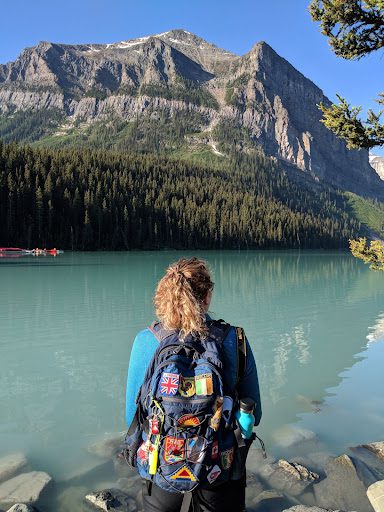
That is when I found NOCD. I was able to see an amazing therapist who specialized in ERP and who took my insurance, so I was paying a small copay to continue to get the support and treatment that I needed. My NOCD therapist helped me to transition into less frequent ERP sessions but held me accountable as the pandemic abated. I was able to gain more control over my life and my OCD in a way that I never had been able to before.
I cannot express how lucky and grateful I am that I had parents who recognized that I was struggling, who could afford treatment, and who were able to support me. I was able to get help, get better, and live an amazing life because they found a therapist who could treat OCD effectively. As I write this, I recognize however that many people have not been so lucky and are still struggling significantly with their OCD. There are people who do not understand the type of treatment that can help them. There are individuals who are struggling to get started because of fear. There are people who are seeing therapists but are not getting effective, evidence-based treatment for their OCD. There are individuals and families who simply cannot afford it.
I cannot stress enough how important treatment is for OCD. Although it can feel scary, there are people who can help. NOCD is making care more affordable for everyone who needs it and broadening access to care in a way that is approachable, convenient, affordable, and evidence-based. If any part of my story relates to you or you are struggling, know you are not alone. Please reach out for help with NOCD, where you have a community that can help and support you on this journey.

